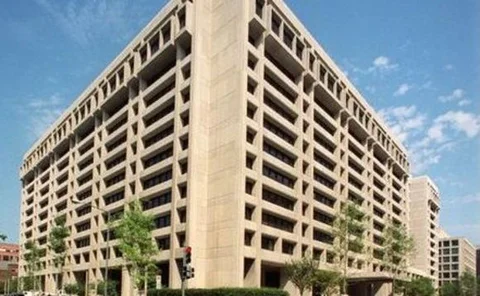Central Banks
Credit growth has had significant impact on EM growth, IMF paper says
IMF paper explores relationship between the level and composition of credit growth and real GDP growth across 31 emerging market economies
Cyber attacks could represent systemic threat, warns Ireland’s Roux
A string of cyber attacks on financial institutions could start a ‘domino effect’ that triggers a financial crisis, so firms need to improve their defences, deputy governor says
Economists expected lower inflation under Yellen than Bernanke, SNB paper finds
Sample of economists from ‘reputable academic and policy institutions’ on aggregate expected slightly lower inflation under Yellen compared to if Bernanke had stayed on
Paraguayan central bank plans to expand new database
Central Bank of Paraguay aims to include wider range of data in new online platform, which was launched last week to ‘favourable reception’
Disharmony threatens EU regulation, says EBA’s Enria
EBA chair says countries have too many opportunities to bend regulations to suit them, undermining supervision and harming banking union; argues EBA should be granted greater responsibilities
Carney sees ‘clear interest’ in preparing for transition to lower-carbon economy
While central bankers will not determine response to climate change, they should ensure markets adjust efficiently, according to Carney, which means boosting transparency
Central banks should prepare to deal with sharp drops in liquidity, IMF says
Policy-makers need to take action to halt rising risks relating to liquidity, IMF says; central banks may be able to use collateral policies to deal with crises
Colombia concerned by loosening inflation expectations
Unexpected increase in inflation spurs Colombian central bank into action, as it raises key rate by 25 basis points; observers divided over importance of growth risks
Global factors harming domestic policy transmission in Asia, IMF research finds
Authors find global factors help to explain why bank funding in Asian economies has such a limited role in transmitting monetary policy
Chicago Fed president wants more evidence of inflation
Evans backs an ‘extra-patient approach’ to monetary policy as he airs concerns over inflation outlook and ‘asymmetric’ risks; assesses economy more cautiously than FOMC colleagues
BoE paper extracts inflation expectations from market rates
Market rates are an imperfect measure of expected future inflation, say economists, who break them down into constituent parts, stripping out risk premia and the ‘wedge’ between RPI and CPI
Botswana research weighs impact of various instruments on credit
While interest rates may be more effective at influencing credit than reserve requirements, more ‘direct’ macro-prudential measures could be even better, Botswana article finds
Trichet says banks must keep ‘hammering’ at their culture
Progress towards improving culture and behaviour at banks is uneven, and the G30 is calling on the laggards to catch up; Central Banking asked members what still needs to be done
Reserve Bank of India ‘front-loads’ easing with 50bp cut
Rajan points to deterioration in global outlook and desire to boost investment; RBI will now focus on improving the transmission of cumulative 125bp reduction in key rate
Kuroda unfazed by ‘somewhat stagnant developments’
Japan’s economy has been through a summer lull but the BoJ chief insists it will bounce back, with inflation set to rise as expectations shift and low oil prices pass through
FSB agrees final TLAC principles but asset management work has way to run
Meeting in London sees the organisation agree final draft principles for total loss-absorbing capacity, as new branches of research into asset management risks sprout
Noyer wants tailored approach to shadow bank regulation
Banque de France governor highlights the risks of a ‘one size fits all’ approach to regulation across the banking and shadow banking sectors
‘Little support’ from data for theories of disconnect between trade and exchange rates, IMF report says
Data largely supports conventional economic wisdom linking movements in trade flows with levels of exchange rates, according to WEO chapter; Japan may be an exception
Global indicators can boost inflation forecasts in short term, paper finds
Author uses global inflation indicators and Brent oil price to augment domestic inflation forecasts in 523 countries, finding both improve accuracy

















